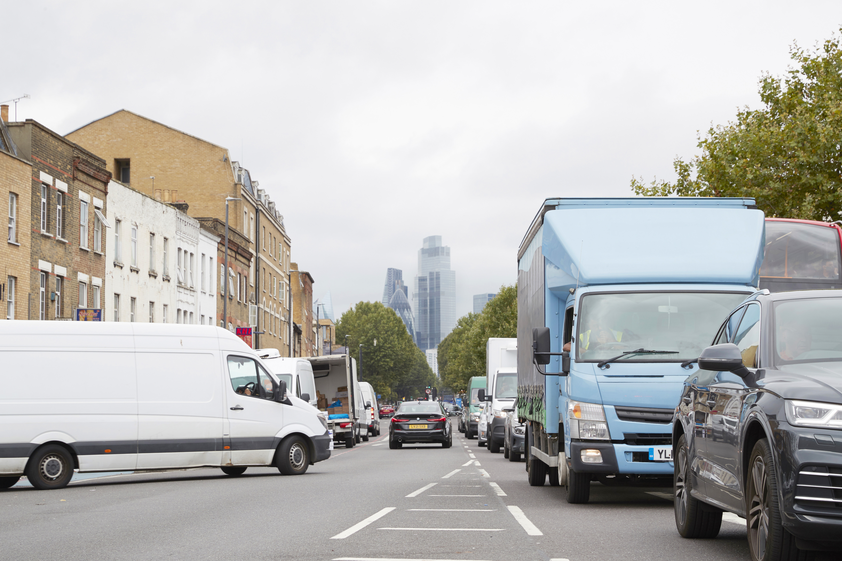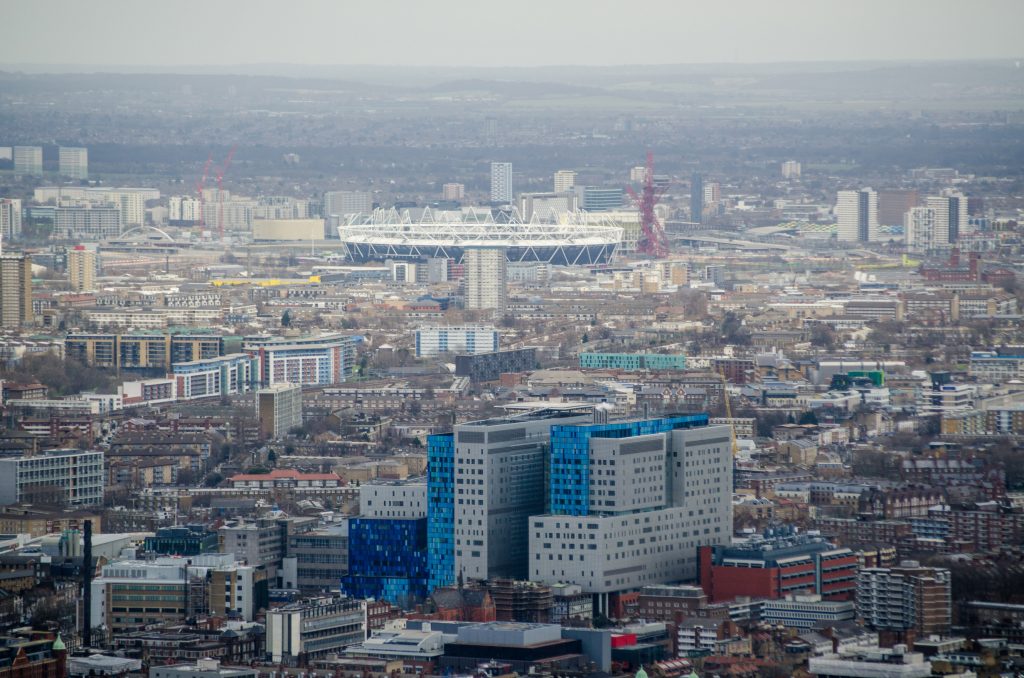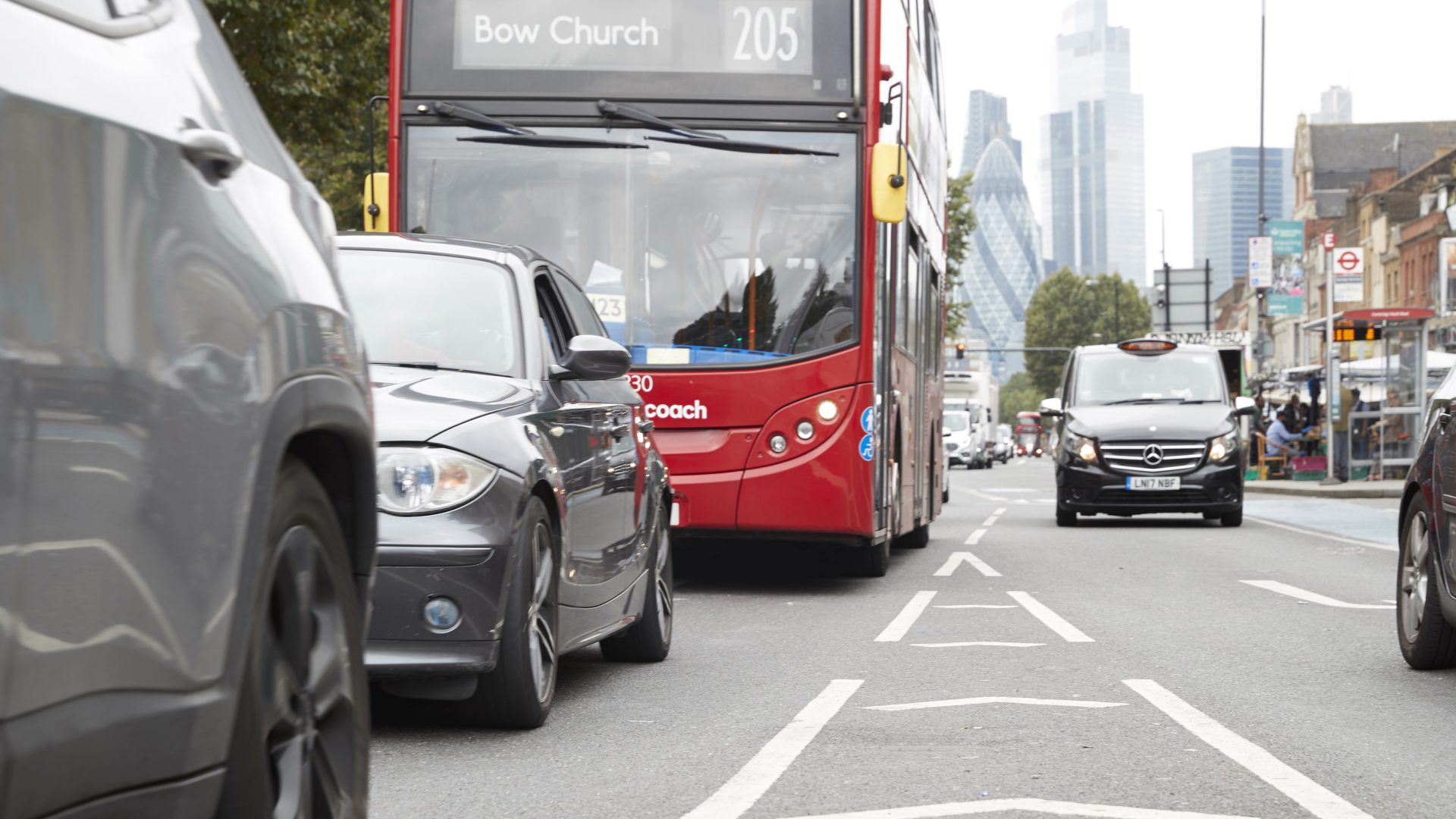A UK first – Children’s Environmental Assessment Service
Barts Charity has awarded a grant of just over £500,000 to the Blizard Institute at Queen Mary University of London, to establish the UK’s first-ever Children’s Environmental Assessment Service. The new air pollution clinic for children, based at The Royal London Hospital (part of Barts Health NHS Trust), is set to open early 2023.
This unique project is an opportunity to improve the health of children living in East London, an area that suffers from high levels of pollution.
The service will also pioneer a novel and innovative air pollution intervention that could act as a model for future services nationally.

A polluted London street
The risks of polluted air
For children that suffer from lung diseases such as asthma, breathing polluted air can make their wheezing worse. Polluted air is air containing tiny sooty particles, and the gas nitrogen dioxide from traffic and indoor sources such as cooking, heating, and parental smoking. Other pollutants include moulds in damp accommodation.
This is a problem that the NHS has not yet been able to address, a gap tragically highlighted in the case of nine-year-old Ella Kissi Debrah. Ella sadly died from an asthma attack in 2013. Despite living on a main road, no doctor discussed the effects of air pollution on Ella’s asthma with her family. The coroner concluded that air pollution contributed to her death from an asthma attack. The report highlighted the need for all health professionals to communicate the risks of air pollution.
We are proud to support this critically needed air pollution initiative which could potentially improve the lives of so many vulnerable young people in East London.Fiona Miller Smith, Barts Charity CEO
A focus on reducing exposure
In response to this, leading expert, Professor Jonathan Grigg, Professor of Paediatric Respiratory and Environmental Medicine at Queen Mary University of London and a Consultant Respiratory Paediatrician at the Royal London Hospital, plans to create the first NHS Children’s Environmental Health Assessment Service. The service will be based at the Royal London Hospital and staffed by a full-time nurse and a clinician. Its focus will be on reducing exposures of children with severe asthma.
Professor Grigg says: “There is an urgent need to reduce children’s exposure to air pollution to reduce the likelihood of them developing or aggravating asthma and other allergic disease. The health impact of the air within our homes and schools needs to be taken seriously as a significant source of ill health.
“Currently no NHS clinical service has the expertise to address the breathed environment of their patients and it is this major clinical gap that we propose to tackle by developing the first UK Children’s Environmental Assessment Service.”
A critically needed service
Fiona Miller Smith, Barts Charity CEO, added: “We are proud to support this critically needed air pollution initiative which could potentially improve the lives of so many vulnerable young people in East London. As a charity we are committed to enabling cutting-edge innovation that tackles the health inequalities that exist within our communities.”

City pollution
Making recommendations for a better future
At their first visit to the service, children and their parents will be asked about possible indoor and outdoor sources of air pollution. Samples will then be taken that indicate exposure, for example the amount of soot in cells coughed up from the breathing tubes.
Devices will then be installed in the home which will measure particles, chemicals, moulds, and damp. The child will also be provided with portable devices to measure their own pollution exposure outdoors and at school.
A detailed exposure report for each child will then be produced and discussed with the family. These reports will recommend ways of reducing exposure such as avoiding pollution hotspots, and ventilating the home during cooking. The effects of the agreed interventions will be addressed by repeat monitoring.
Read how mould in the home was responsible for the death of a young boy in Rochdale.


